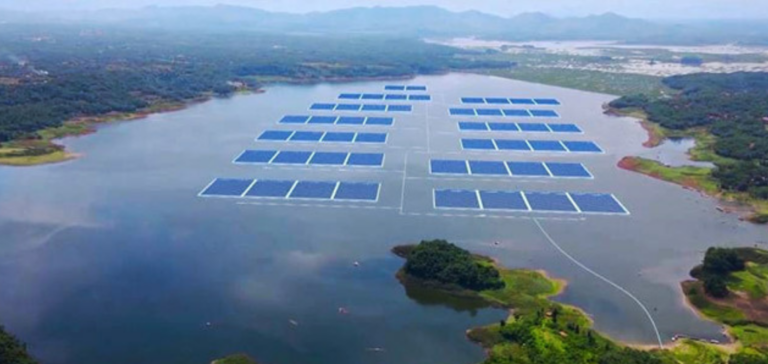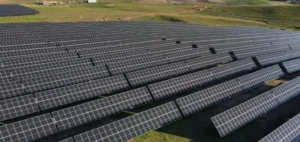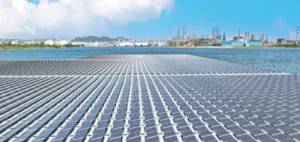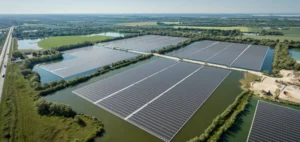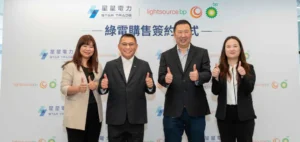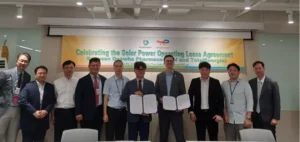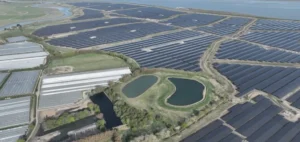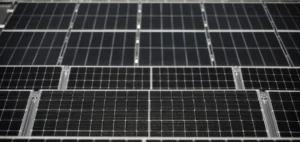The completion of the 145 megawatt (MWac) (192MWp) Cirata floating solar power plant in Indonesia marks a major milestone in Southeast Asia’s renewable energy sector. Indeed, this project, undertaken by the Emirati company Masdar and the Indonesian group PLN, symbolizes the growing commitment of these nations to the energy transition.
Cooperation between Indonesia and the United Arab Emirates
Built on a 250-hectare plot on the Cirata reservoir in West Java province, the plant is Masdar’s first of its kind and the largest in the region. It has the capacity to supply electricity to 50,000 homes, while reducing carbon dioxide emissions by 214,000 tonnes.
Phase II planning and future expansion
This project illustrates the close collaboration between Indonesia and the United Arab Emirates (UAE) in the field of clean energy. Masdar, and PLN Nusantara Power (PLN NP), have also planned a second phase for Cirata, aimed at developing up to 500MW of additional capacity.
Importance of the inauguration event
The inauguration event was attended by key figures including Indonesian President Joko Widodo, Minister of Energy and Mineral Resources Arifin Tasrif, and representatives of the United Arab Emirates, underlining the importance of the project for both countries.
Regulations and expansion opportunities
The plant’s planned expansion is made possible by a recent regulation from Indonesia’s Ministry of Public Works and Housing, allowing up to 20% of the water surface to be used for renewable energy projects.
International cooperation and emissions targets
The Cirata project is hailed as a model of international cooperation in reducing emissions and accelerating the energy transition to net zero emissions by 2060. Indonesia, a key strategic market for Masdar in Southeast Asia, has also seen the company invest in the geothermal energy sector through a strategic investment in Pertamina Geothermal Energy (PGE) in February 2023.
Economic and environmental implications
In addition to its environmental implications, the Cirata project brings significant economic benefits. According to the International Renewable Energy Agency (IRENA), increasing renewable energies could save Indonesia up to US$51.7 billion a year, taking into account the impact on air pollution and climate change.
Advantages of floating solar power plants
Floating solar power plants offer many advantages. In particular, they offer greater efficiency for solar panels thanks to the proximity of the water that cools them. What’s more, they also help reduce evaporation, preserving fresh water for drinking and irrigation. Masdar, founded in 2006, is active in over 40 countries and has a total power generation capacity of over 20GW. With investments in projects with a combined value of over US$30 billion, Masdar has ambitious plans to reach 100GW and produce 1 million tonnes of green hydrogen by 2030.
The inauguration of the Cirata floating solar power plant represents a giant step forward for renewable energy in Southeast Asia. This project, the fruit of international collaboration, illustrates the growing importance of floating solar energy in the fight against climate change.

